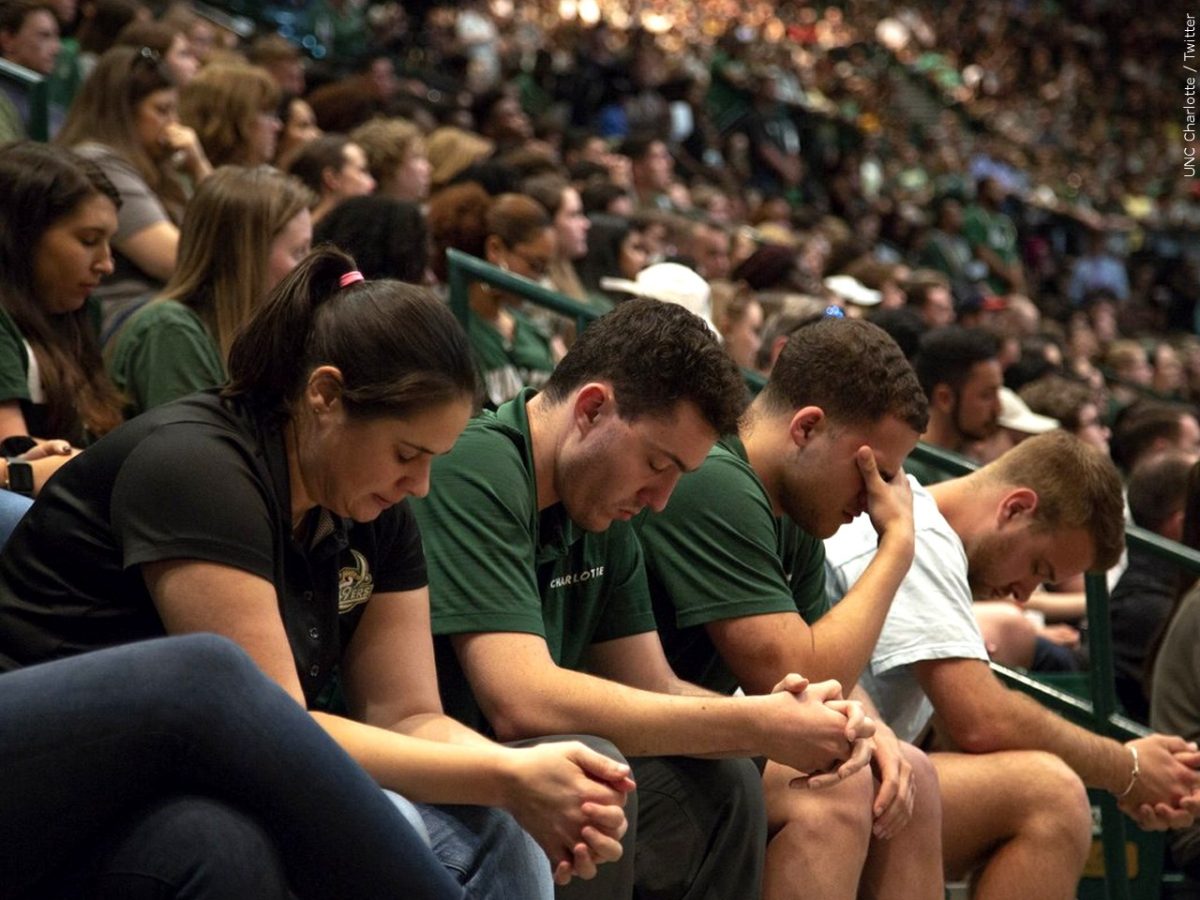Gun-related violence has become regular headlining news in the United States. On Monday, Aug. 28, there was a shooting on the campus of UNC at Chapel Hill. One person, Zijie Yan, was killed in the incident. Many people were relieved that the gunman, identified as graduate student Tailei Qi, was stopped before any other people were injured or killed.
The past two years have seen school shootings with high fatalities in instances like the infamous Nashville and Uvalde attacks. “Education Week” is a K-12 education-related news reporting organization that keeps a record each year of school shooting-related injuries and deaths. According to their records, 2023 has seen 28 school shootings involving injuries or deaths, with 29 people injured and 15 people losing their lives.
Olivia DeRosa is a junior mass communications major and former political science major, and she sees something wrong with living in a world where this level of violence is something people accept.
“The other issue is that, somehow, amongst the amount of shootings and children that are dead, lawmakers have yet to pass stricter gun laws restricting access to guns,” DeRosa said. “The last gun law we passed was in 2022, and before that, the Second Amendment hadn’t been touched since 1994.”
DeRosa knows that a campus shooting is a real possibility and that it is something she must be prepared for.
“We have a new school shooting what feels like every month, and because we have them so frequently, it has become a part of life,” DeRosa said. “As a student, I have an exit plan, and it’s something I have to think about.”
Many people experience some degree of desensitization towards these acts of violence. With mass shootings becoming something more commonplace in the U.S., to many individuals, hearing about them on the news is no longer as shocking or as heartbreaking as it might have once been. But, according to Associate Professor of Psychology Dr. Whitney Heppner, this is not due to a lack of empathy among people. It is a psychological adaptive response.
“It’s a normal process for humans to adapt to situations that they’re in,” Heppner said. “And so it would actually be much more detrimental if I’m hearing about a school shooting on the news and I’m having a major emotional reaction every single time. It’s actually less adaptive than if I eventually blunt my emotional response to that a little bit.”
Heppner is concerned for students growing up in an environment with intruder drills and potential firsthand exposure to gun violence. However, she said that she also carries an amount of concern for the educators who must protect and shield their students from these assaults. Teachers bear the responsibility to keep their students safe while at school, and the role of boarding up your classroom and protecting thirty or so adolescents from a gunman takes a definite toll on one’s mental health.
Mason Heard is a junior majoring in middle-grade education. He knows that, one day, the responsibility to protect a roomful of children may fall to him.
“It is really scary, ‘cause it’s like, why should such an easy job – you know, teaching students – why should it be so dangerous?” Heard said. “Even though it hasn’t happened close to home for me, it still makes me very nervous as a teacher.”
The number of shootings in the U.S. each year is on the rise, as it has been for many years now. The weight of living in a world prepared for violent crime takes its toll on everyone in the classroom, regardless of age or role.


